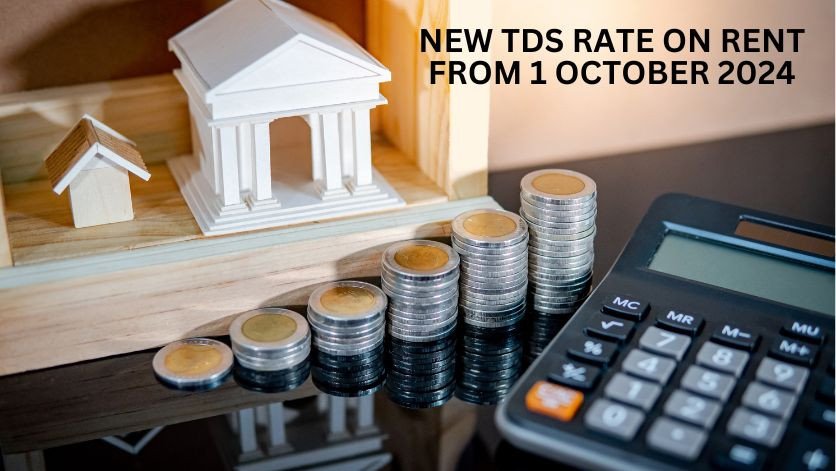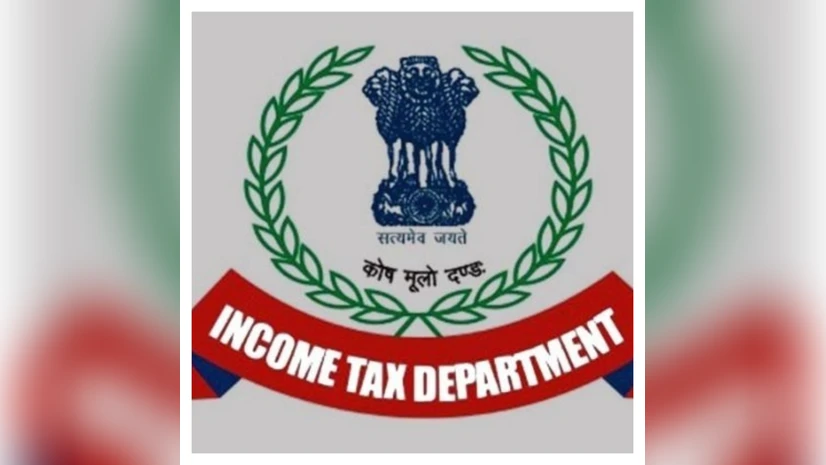Share

TDS on Salary under Section 192 of the Income Tax Act
TDS on salary means that tax has been deducted by the employer at the time of depositing the salary into the employee’s account.
- The amount deducted from the employee’s account is deposited with the government by the employer.
- Before an employer deducts tax at source from an employee’s salary, he/she must obtain TAN registration.
- The Tax Deduction and Collection Account Number or TAN number is essentially a 10-digit alphanumeric number that is used to track TDS deduction as well as a remittance by the Income Tax Department.
Formula to Calculate TDS on Salary
The formula to calculate TDS on Salary is as follows
Income Tax Rate = Income Tax Payable (computed with slab rates) / Estimated Revenue for the financial year
How do I Calculate TDS on my Salary under Section 192
While the basic salary is fully taxable according to the respective tax bracket, some exemptions are available for payments made as allowances and perks.
You can calculate TDS on your income by following the below steps:
Step 1: Calculate gross monthly income as a sum of basic income, allowances and perquisites.
Step 2: Calculate available exemptions under Section 10 of the Income Tax Act (ITA). Exemptions are applicable on allowances such as medical, HRA, and travel.
Step 3: Reduce exemptions according to step (2) for the gross monthly income calculated in step (1).
Step 4: As TDS is calculated on yearly income, multiply the corresponding figure from the above calculation by 12. This is your yearly taxable income from your salary.
Step 5: If you have any other income source such as income from house rent or have incurred losses from paying housing loan interests, add/subtract this amount from the figure in step (4).
Step 6: Next, subtract the amount from the gross income determined in step (5) that represents your investments for the year that are subject to Chapter VI-A of the ITA.
Step 7: A good illustration of this is the up to Rs. 1.5 lakh exemption provided by Section 80C, which covers a variety of investment options including PPF, life insrance premiums, mutual funds, house loan repayment, ELSS, NSC, Sukanya Samriddhi accounts, and others.
Step 8: Reduce the maximum salary-related income tax exemptions now.
Step 9: Taxes are currently not due on income up to Rs.2.5 lakh, 10% on income between Rs.2.5 lakh and Rs.5 lakh, and 20% on income between Rs.5 lakh and Rs.10 lakh. The tax rate on all income over this threshold is 30%.
Step 10: Do note that senior citizens have different tax slabs and receive higher exemptions than those discussed above.
Example
As per the steps outlined above, let’s consider a numeric example for better understanding.
- Steps (1) & (2 )Suppose your monthly gross income is Rs.80,000. This figure may contain divisions such as – basic pay Rs.50,000, HRA of Rs.20,000, travel allowance of Rs.800, medical allowance of Rs.1,250, child education allowance (CEA) of Rs.200 and other allowances totaling 12,750.
- Steps (3) & (4) Assuming that you stay at your own property, your monthly exemption from allowances equals Rs.2,250 (medical + travel + CEA). Therefore, your yearly taxable amount comes to (Rs.80,000 – Rs.2,250)*12, which comes to Rs.9,33,000.
- Step (5) Let’s say you just experienced a loss of Rs.1.5 lakh on house loan interest repayments over the year. Reducing this exempted amount from the taxable income, your taxable income becomes Rs.7,83,000.
- Step (6) Suppose you have invested Rs.1.2 lakh in various categories that fall under Section 80C exemptions, and made another Rs.30,000 investment in categories falling under Section 80D. So, the resulting Rs.1.5 lakh is exempted from taxes according to Chapter VI-A. Deducting this amount from the gross taxable income calculated above, your taxable income becomes Rs.6,33,000.
- Step (7) Finding out your tax slabYour final tax breakup according to income slabs listed by the IT department is as follows: Therefore, the final TDS to be deducted from your yearly income is Rs.25,000 + Rs.26,600, which comes to Rs.51,600 for the current year’s income, or Rs.4,300 per month for the current fiscal.
| Income Tax Slabs | TDS Deductions | Tax Payable |
| Up to Rs.2.5 lakhs | Nil | Nil |
| Rs.2.5 lakhs to Rs.5 lakhs | 10% of (Rs. 5,00,00-Rs.2,50,00 | Rs.25,000 |
| Rs.5 lakhs to Rs.6.33 lakhs | 20% of (Rs. 6,33,00-Rs.5,00,00) | Rs.26,600 |
How is TDS Calculated?
Sections 80C and 80D of the tax code provide for tax exemption. This enables a person to apply for a tax exemption based on the different types of investments that person is making for that specific fiscal year.
By subtracting the exemption from the total yearly earnings as determined by the Income Tax authorities, it is possible to compute the TDS on salary. To approve a tax exemption, the employer needs to see a declaration and supporting documentation from the individuals.
The following groups are taken into account for exemption:
- House Rent Allowance – If an employee is paying towards accommodation as rent and entitled to HRA from the employer, the employee can declare this amount for tax exemption.
- Conveyance or Travel Allowance – If an employee is provided with conveyance allowance, the employee can declare them for tax exemption.
- Medical Allowance – If an employee is entitled to a medical allowance, he/she can declare and produce medical bills for tax exemption.
There are limits to the maximum amount that can be considered for exemption.
When is TDS Deducted Under Section 192?
- According to Section 192, TDS is taken out only when the salary is actually paid out, not when it is accumulating. T
- his means that when your employer pays your paycheck, whether in advance, on time, or in arrears (late payment), tax will be deducted.
Who Can Deduct TDS Under Section 192?
Employers who can deduct TDS under Section 192 are
- Individuals
- HUF
- Public and private companies
- Partnership firms
- Co-operative societies
New Income Tax Regime for Individuals
As per the latest announcements made by Finance Minister Nirmala Sitharaman for the Budget of Financial Year 2023-24, a new tax regime has been introduced. Based on the new tax regime, the rates of charging the income tax have been reduced.
However, the catch is that under the new regime, taxpayers will not be able to avail the benefits of the usual deductions and allowances such as HRA, standard deductions, etc.
The tax rates as per the new regime are listed below:
| Income Tax Slab | New Tax Rate |
| Up to Rs.3 lakh | Nil |
| From Rs.3 lakh – Rs.6 lakh | 5% above Rs.3 lakh lakh |
| From Rs.6 lakh – Rs.9 lakh | 10% of the total income |
| From Rs.9 lakh – Rs.12 lakh | 15% of the total income |
| Above Rs.12 lakh – Rs.15 lakh | 20% of the total income |
| Above Rs.15 lakh | 30% of the total income |
What is TDS Calculated on?
The CTC quoted to you at the time of joining includes components such as basic salary, travel allowance, house rent allowance, medical allowance, dearness allowance, special allowances and other allowances.
The CTC is divided into two major categories : salary and perquisites. Perquisites, or perks as they are popularly called, include facilities and benefits provided by the employer towards expenses such as travelling, canteen and fuel subside, hotel expenses and so on.
TDS Deductions
The following process is involved in the deduction of TDS:
- Calculating total earning– The employer is required to calculate the total earnings of the employee.
- Calculating the total amount eligible for the exemption– The employer is accountable for calculating the total amount that is considered for tax exemption. The employee needs to declare the type of amount that is eligible for exemption.
- Obtaining declaration and investment proof– The employer is required to collect investment and proofs from employees.
- Depositing TDS deductions– The employer will require depositing the collected TDS to the central government.
The deduction on TDS under different Section follows below:
- Section 80C
- An employee can declare for a maximum of Rs.1,50,000 for tax exemption. The following investments schemes are considering for exemption under Section 80C:
- Investment in mutual funds and equity shares, such as ULIP, Linked Saving Scheme of a Mutual Fund/UTI
- Life insurance Premium paid
- Contribution to statutory PF, 15 years PPF, and superannuation funds
- Payments towards subscription for National Saving Certificates and Home Loan Account Scheme
- Interest earned through few of the National Savings Certificates are eligible for a certain amount of tax
- Fixed deposit scheme for a period of minimum 5 years
- Section 80CCG
- If an employee invests in certain equity saving programs, they may be eligible for an annual exemption of up to Rs.25,000.
- The investment should be made for at least three years after the acquisition of the scheme.
- Section 80D
- The section 80D offer exemption for the premiums paid for a Medical Insurance.
- The exemption is also extended to the individual’s dependents.There are various other Sections that regulates many other types of exemptions.
FAQs on Calculate TDS on Salary
- When Can TDS On Salary Be Claimed?
Only at the point of actual payment may the TDS be deducted from a salary. Additionally, it will be subtracted upon the employee’s taxable salary income. However, TDS on salary would not be withheld if the remuneration is equal to or less than Rs.2.5 lakh. - Can I avoid TDS on salary?
Forms 15G or 15H can be submitted to avoid TDS. It is for older citizens, Form 15H. If there is no tax on the whole income, it can be filed. For everyone else, excluding NRIs, use Form 15G. - Is TDS refundableon salary?
TDS on the pay component is typically refundable. Such a refund is only feasible, though, if the tax deduction exceeds the employee’s tax obligation. Furthermore, there are situations when the investments made at the end of a fiscal year differ from those disclosed at the start of the year. - Who pays TDS on salary?
In accordance with Section 192, TDS shall be subtracted from the employee’s wage at the time of payment. Since the worker receives a monthly salary, the company will take TDS from that amount each month. - Is TDSDeduction on Salary Mandatory?
Indeed, Section 192 of the Income Tax Act mandates that TDS be deducted from salaries. If an employee’s salary exceeds the basic exemption limit, all employers who give salaried income to their staff are required to withhold TDS from their compensation. - Is TDS Deducted Every Monthfrom Salary?
When paying an employee, the employer is required by Section 192 to deduct TDS from their salary. The employer will take TDS from the employee’s compensation each month since they receive a wage each month. - How much deduction can I claim under Section 80C when calculating TDS on salary?
The maximum amount that can be claimed under Section 80C of the Income Tax Act is Rs.1.5 lakh. - When is TDS on salary deducted under section192?
TDS is required to be deducted by the employer, when taxable income of an employee exceeds basic exemption limit. - Can HRA be claimed as a deduction when calculating TDS onsalary?
Employees will have to declare the amount paid as rent and it can be claimed as an exemption. - What are the few items are allowed for TDS exemption?
PPF, ELSS, EPF, Bank FDs, NSC, Transport allowance, House Rent Allowance and Savings under Section 80C are eligible for exemption - Can I find out how much tax the payer deductedfrom the income?
Yes, Form 26AS is available on the Income Tax Portal under the ‘View Your Tax Credit’ tab. You can also request a TDS certificate from the payer. - Do I have to provide my PAN cardfor TDS?
Yes, a PAN card is required for TDS deductions and deposits. However, TDS would be deducted at a flat rate of 20% if you fail to provide your PAN card - Is there any penalty for the payee if the payer fails to deduct TDS?You, as the payee, are required to pay your tax liability when filing returns. You will not incur any penalties if the payer fails to deduct TDS; this is because it is the payer’s responsibility to do so.
- When is the TDS ratecalculated by the employer?At the start of each fiscal year, the applicable TDS rate is calculated by the employer based on the salary of the employee and available deductions and exemptions. When you change jobs, the employer will start calculating the TDS from the date you join the company.
- I got a bonus of Rs.1 lakh from my employer. Would TDS be applicable?Yes, TDS would apply to the bonus you get from your company.









